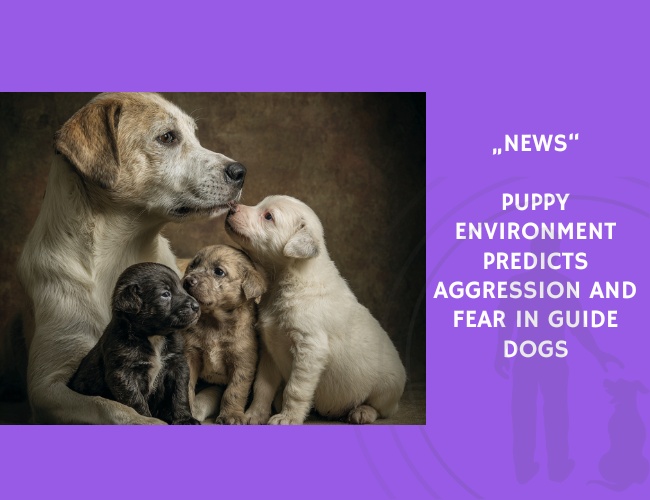The environment in which puppies are raised has lasting effects on their emotional and behavioral development. Serpell and Duffy (2016) examined 978 prospective guide dogs from four breeds/crosses to assess how early rearing conditions influenced behavior at 12 months.
Puppies were raised in volunteer homes from 7–8 weeks of age, and behavioral data were collected at 6 and 12 months using the C-BARQ©, a validated tool for assessing canine behavior. Environmental details, such as handler experience and household composition, were also recorded through standardized questionnaires.
The results revealed clear maturational changes between 6 and 12 months, with German Shepherd dogs showing an increase in stranger-directed aggression compared to other breeds. Environmental influences were strongly linked to behavioral outcomes:
- Puppies raised by experienced puppy raisers displayed more favorable behavioral profiles.
- Growing up in households with at least one other dog was associated with positive social outcomes.
- Puppies that had been frightened by a person showed higher levels of stranger fear.
- Puppies that had been threatened by unfamiliar dogs exhibited increased dog-directed fear.
Conversely, puppies reared in households with less experienced raisers or without other pets had poorer behavior scores and less success in later training. The study underscores the importance of early socialization, handler expertise, and safe experiences in shaping guide dogs’ future reliability.
Source: Serpell, J., & Duffy, D. (2016). Aspects of Juvenile and Adolescent Environment Predict Aggression and Fear in 12-Month-Old Guide Dogs. Frontiers in Veterinary Science, 3. Authors: James Serpell, Deborah Duffy. Journal: Frontiers in Veterinary Science. https://doi.org/10.3389/fvets.2016.00049










